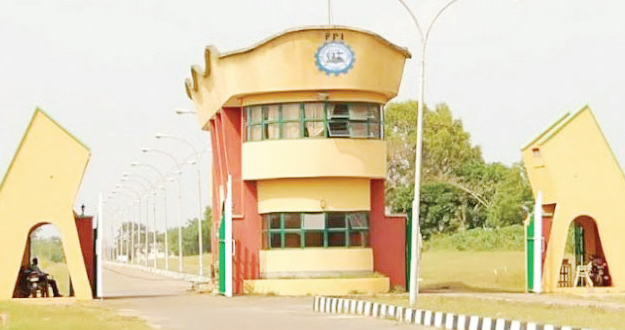The Federal Polytechnic, Ilaro, recently renamed the Federal University of Technology, Ilaro, is experiencing a surge of excitement and anticipation following the groundbreaking ceremony for the construction of a multimillion-naira dam on its premises. Dr. Mukail Akinde, the Rector of the institution, has lauded the project as a timely intervention that promises to significantly enhance food security not only within the university community but also across the nation. He further emphasized the dam’s potential to address flooding and erosion concerns in the surrounding area, underscoring the project’s multifaceted benefits. The dam’s construction aligns perfectly with the newly accredited School of Agriculture, offering students invaluable practical experience and bolstering the institution’s capacity to contribute to national food sufficiency.
President Bola Tinubu’s approval of the dam project has been met with widespread appreciation, reinforcing the current administration’s commitment to addressing the nation’s food security challenges. Dr. Akinde expressed profound gratitude to Senator Solomon Adeola, representing Ogun West Senatorial District, for his instrumental role in facilitating the project, highlighting his unwavering support for developmental initiatives within the region. The Ogun-Osun River Basin Development Authority’s commencement of the dam’s construction marks the realization of a long-awaited aspiration for the institution and the surrounding community.
The Rector, brimming with optimism, articulated the transformative potential of the dam, stating that the Federal Polytechnic, Ilaro, could comfortably cultivate up to one hundred hectares of various crops, significantly boosting food production in the community. Citing a recent successful experiment with a prototype dam that yielded a bountiful tomato harvest sold at affordable prices to the community, Dr. Akinde emphasized the tangible benefits of the project. Beyond agriculture, the dam also presents a viable solution to the institution’s power supply challenges, with the potential for generating electricity through the installation of a suitable turbine. The Rector reiterated the immeasurable economic significance of a dam, underscoring its diverse applications and far-reaching impact.
Engr. Olumuyiwa Aikulola, speaking on the scope of the project, clarified that while the dam is situated within the university’s premises, its benefits will extend beyond the institution to encompass the neighboring communities. He highlighted the wide-ranging advantages of a dam, from facilitating year-round farming through irrigation to generating power, controlling floods and erosion, and providing a reliable water supply. These diverse functionalities, he noted, would stimulate economic activity, create employment opportunities, and contribute to wealth creation within the region. The construction phase itself will generate employment for various skilled workers, including technical experts, artisans, and support staff. Upon completion, the dam’s irrigation system will extend beyond the university, fostering a robust value chain and creating further employment opportunities.
While acknowledging the potential hazards associated with dam sustainability, Engr. Aikulola stressed the importance of proper management to mitigate risks such as flooding, assuring that such occurrences are rare with appropriate oversight. The dam’s design and construction will incorporate safety measures to minimize potential risks and ensure its long-term viability. This proactive approach will address environmental concerns and ensure the dam’s safe and sustainable operation. Regular monitoring and maintenance will be integral to the dam’s effective management, preventing potential hazards and maximizing its benefits for the community.
The Deputy Rector, Administration, Lukman Lasisi, further elaborated on the dam’s economic and social benefits, emphasizing that crop production represents just one facet of its potential. He highlighted the prospect of establishing fishing ventures, further diversifying the economic activities supported by the dam. Lasisi underscored the immeasurable economic value of the project, extending beyond quantifiable monetary terms. The dam’s construction promises significant social and environmental benefits, including a controlled water source, reducing the reliance on boreholes for potable water supply, and potentially mitigating environmental risks associated with groundwater extraction. The dam also holds the potential for developing a recreational park, benefiting the community and attracting tourists. This multifaceted approach to the dam’s utilization maximizes its positive impact on the community and the environment.


